Programa de Pós-Graduação em Educação Contemporânea (PPGEduC)
 Web Content Display
Web Content Display
Research Group on Social Movements, Education, and Diversity in Latin America
This group serves as a space for knowledge production encompassing research, outreach, and teaching through an inter- and transdisciplinary approach to education and the emancipatory social struggles of groups and social movements in Latin America. The research themes are:
a) Science and Knowledge Production;
b) Education and Popular Social Movements in Latin America;
c) Education in Human Rights, Memory, and Truth in Latin America; and
d) Education, Gender, and Sexualities in Latin America.
The group publishes the REVISTA DEBATES INSUBMISSOS, ISSN 2595-2803, an online platform edited by Allene Lage, Boaventura de Sousa Santos, and Maria Paula Meneses.
Leader: Allene Carvalho Lage (PPGEduC-UFPE/CAA)
Co-leader: Mário de Faria Carvalho (PPGEduC-UFPE/CAA)
Transdisciplinary Research Group on Aesthetics, Education, and Culture (The Imaginary)
THE IMAGINARY brings together researchers interested in studies related to the intersections between interculturality, arts, and education. Based on three lines of research—Imaginary, Education, and Culture; Aesthetics, Gender, and Subjectivity(ies); and Design, Culture, and Image—the group's research focuses on contemporary phenomena through artistic expressions, popular culture, aesthetics, Baroque, post-structuralist studies, imaginary theory, and gender issues. Transdisciplinary in nature, the group employs dialogue between different areas of knowledge, theories, methods, and approaches to analyze social phenomena from an interdisciplinary perspective.
Leader: Mário de Faria Carvalho (PPGEduC-UFPE/CAA)
Co-leader: Daniela Nery Bracchi (PPGEduC-UFPE/CAA)
Processes of Subjectivation, Education, Gender, and Sexuality (SEGS)
The group develops extension activities and research on subjectivation processes in both informal education, through social communication, and formal education, including basic and higher education. Its research focuses on the following lines: a) education, gender, and sexuality; b) subjectivities, intersectionalities, and interculturalities; and c) communication and media. The main topics studied are: Education, Gender, Sexuality, Subjectivities, Interculturalities, and Intersectionalities.
Leader: Marcelo Henrique Gonçalves de Miranda (PPGEduC-UFPE/CAA)
Co-leader: Ricardo Augusto de Sabóia Feitosa (UFPE/CAA)
The Anthropology Laboratory (Lan) has been supporting various research projects at both undergraduate and graduate levels, as well as extension activities, particularly in the Agreste region of Pernambuco (PE), with a primary focus on education. The laboratory has been conducting research on Indigenous School Education and the theme of Indigenous issues in schools. It has also mapped the Gypsy Peoples of the Agreste region and developed activities with quilombola communities. Currently, Lan is conducting research on Heritage Education and Archaeological Mapping of the Central Agreste of Pernambuco.
Leader: Sandro Guimarães de Salles (PPGEduC-UFPE/CAA)
Research Group and Studies on Teacher Info-inclusion (GPEINFO)
The group researches methodologies, didactics, and interfaces used in the new languages supported by digital information and communication technologies (ICT), as well as the challenges in integrating them into teaching and learning practices in public schools in the Agreste region of Pernambuco. The central themes studied are: computational thinking, educational robotics, educational objects, ongoing training in educational technologies, and instructional design for public school teachers.
Leader: Anna Rita Sartore (PPGEduC-UFPE/CAA)
Co-leader: Michele Mara de Araújo Espíndula Lima (UFPE/CAA)
Discourse and Educational Practices
The Research Group develops studies on theories and curricular policies, knowledge, teacher training, and professionalization processes, early childhood education, and childhood. It is subdivided into two distinct areas of focus: 1) Teacher training, professionalization, and curricular practices; 2) Childhood, otherness, and early childhood education. The studies are embedded in the daily lives and practices of agents and educational spaces, and they are grounded in approaches from Critical and Post-Critical Theory, Philosophy of Differences, Sociology of Social Practices, and Professions, seeking possible connections.
The group systematizes, discusses, and shares the work developed through systematic meetings among its members, research seminars, field seminars for data feedback, extension activities, participation in field events, production of theses, dissertations, and the publication of texts in the form of journal articles and book chapters.
Leader: Carla Patrícia Acioli Lins Guaraná (PPGEduC-UFPE/CAA)
Co-leader: Conceição Gislane Nóbrega Lima de Salles (UFPE/CAA)
Teaching, Learning, and Educational Processes Research Group (GPENAPE)
GPENAPE researches teaching and learning in different areas of knowledge, with an emphasis on the initial and ongoing teacher training, rural education, ethnic-racial relations, and related themes. It also focuses on the human formation of educational subjects who study and work in multigrade and rural schools, quilombola schools, and other educational spaces.
Leader: Iranete Maria da Silva Lima (PPGEduC-UFPE/CAA)
Co-leader: Maria Joselma do Nascimento Franco (PPGEduC-UFPE/CAA)
Public Policy, Curriculum, and Teaching Research Laboratory (LAPPUC)
The group proposes research and investigation on educational public policies focusing on human rights, inclusive education, rural education, ethnic-racial relations, gender, technology, assessment policies, and teacher training. It also includes studies in the areas of curriculum, curricular policies, and teaching in both basic and higher education, addressing discussions on assessment, innovation, active methodologies, teacher professional identity, professionalism, profession, and sexuality.
Leader: Kátia Silva Cunha (PPGEduC-UFPE/CAA)
Co-leader: Eliana Celia Ismael da Costa (UFPE/CAA)
Technologies, Cultures, and Languages (TECLIN)
The group focuses on the study and research of technologies, cultures, and languages within the fields of Arts, Communication, and Culture. It aims to understand the use of technologies and languages in the construction of meanings in various artistic and cultural manifestations, as well as their potential connections to educational practices. Central themes studied include: Technologies, Cultures, and Languages.
Leader: Fábio Marques de Souza (PPGEduC-UFPE/CAA / UEPB)




